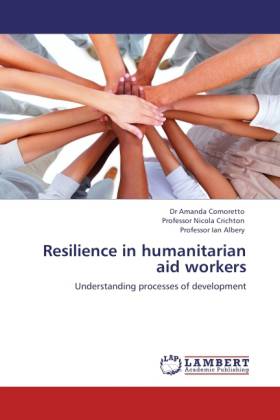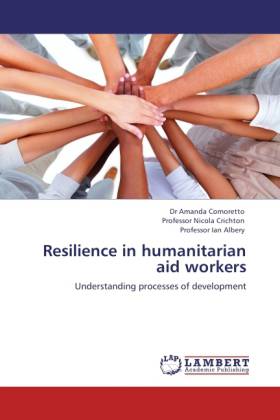
- Afhalen na 1 uur in een winkel met voorraad
- Gratis thuislevering in België vanaf € 30
- Ruim aanbod met 7 miljoen producten
- Afhalen na 1 uur in een winkel met voorraad
- Gratis thuislevering in België vanaf € 30
- Ruim aanbod met 7 miljoen producten
Zoeken
Resilience in Humanitarian Aid Workers
Understanding processes of development
Amanda Comoretto, Nicola Crichton, Ian Albery
Paperback | Engels
€ 77,95
+ 155 punten
Omschrijving
Resilience describes factors that promote wellbeing in individuals undergoing stressful life conditions. The majority of investigations conducted on coping mechanisms have focused on policemen, soldiers, and health care. Only recently has attention towards workplace adversity in humanitarian aid workers become the focus of attention. While some aid workers leave their organisations because of issues associated with workplace adversity many are likely to remain. This raises the issue of why some people are able to thrive despite challenging career choices, while others do not. In this book three protective categories applicable to populations at risk for stress are identified as responsible for the development of resilience: individual characteristics, social support, and cognitive features. A model is developed theorising that positive or negative change in resilience is governed by the relations among protective factors within the individual and the environment. This theoretical framework contributes to the understanding of how resilience develops in field-based humanitarian aid workers allowing them to survive and thrive within extremely challenging environments.
Specificaties
Betrokkenen
- Auteur(s):
- Uitgeverij:
Inhoud
- Aantal bladzijden:
- 376
- Taal:
- Engels
Eigenschappen
- Productcode (EAN):
- 9783845416113
- Verschijningsdatum:
- 29/07/2011
- Uitvoering:
- Paperback
- Formaat:
- Trade paperback (VS)
- Afmetingen:
- 152 mm x 229 mm
- Gewicht:
- 548 g

Alleen bij Standaard Boekhandel
+ 155 punten op je klantenkaart van Standaard Boekhandel
Beoordelingen
We publiceren alleen reviews die voldoen aan de voorwaarden voor reviews. Bekijk onze voorwaarden voor reviews.











